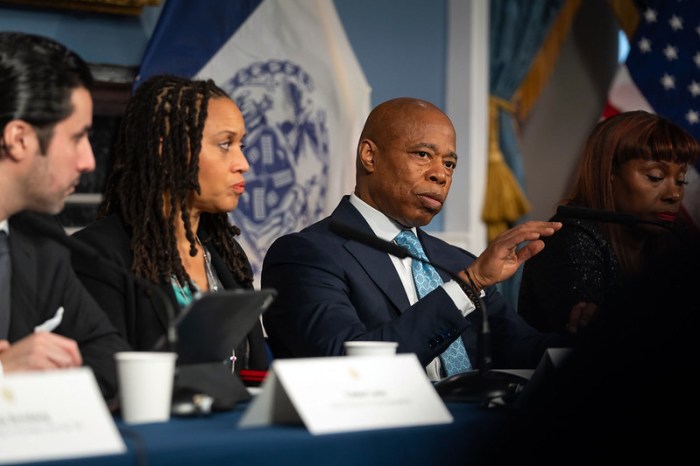
City Council Speaker Corey Johnson unveiled on Tuesday a so-called “master plan” to fix the subways during his State of the City speech. Johnson, who has enjoyed relatively warm media coverage and become something of a social media darling, wants NYC to control public transportation, supports congestion pricing for drivers who enter Manhattan below 60th Street and says he wants to “break the car culture.”
Should NYC fully control subways and buses? Clearly, there is dysfunction at the MTA but there’s little reason to believe the city is better equipped. Johnson and Mayor Bill de Blasio’s bungled rollout of the “Fair Fares” discounted MetroCard program in January would suggest the city can’t even give out MetroCards efficiently let alone fix the system.
On congestion pricing what’s remarkable is that Johnson portrays himself as a transportation savior even as he helped exacerbate traffic problem he wants to solve. In 2015, as Uber battled City Hall over how many for-hire cars should operate in the city, Johnson and other officials sided with the ride-sharing company.
Efforts to control the number of for-hire cars were politically steamrolled thanks in part to Johnson. Three years later, Johnson changed his tune but the damage is done. Ride-sharing app companies flooded the streets with tens of thousands of cars, adding to the car culture Johnson now says he wants to break.
While less dependence on cars sounds like good policy, there is a political dependence question around Johnson that New Yorkers concerned with gentrification should ask. About 20 pages into Johnson’s 100-plus page plan, there is proposal to change zoning codes to allow real estate developers to build higher. In exchange, developers would pay for elevators at subway stations not accessible to wheelchair users.
But why should a federally mandated public service be used as a chip in exchange for over-development? Officials often use failures of the public sector to empower the private sector. The move wreaks of yet another giveaway to developers. Johnson’s predecessor, Melissa Mark-Viverito, similarly promised community improvements to garner support for a rezoning in East Harlem that favored the real estate market.
Real estate influence in politics has become a central question in our city. Johnson has received considerable donations from the industry. Breaking developer culture is something the speaker might want to consider.
Josmar Trujillo is a trainer, writer and activist.

















